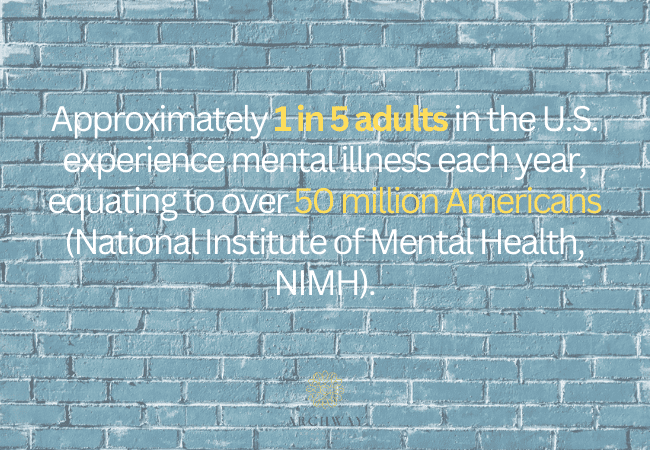Supporting someone through mental health recovery can be an incredibly rewarding but often challenging process. Whether you’re helping a loved one, a close friend, or a colleague, understanding the complexities of mental health recovery and offering the right kind of support can make a significant difference in their journey. At Archway Behavioral Health, we recognize that recovery isn’t just about individual efforts—it’s about a collaborative and holistic approach that involves emotional, practical, and professional support.
In this guide, we’ll explore how you can best support someone in mental health recovery, including the importance of professional care, the value of emotional support, and the critical role that therapeutic programs like DBT Therapy, CBT Therapy , and Mental Health Treatment Programs play in the process.
1. The Role of Professional Care in Mental Health Recovery
While emotional and practical support from friends and family are essential, professional care is the cornerstone of effective mental health recovery. The benefits of professional treatment are far-reaching, offering individuals the guidance and structure they need to heal. Mental Health Treatment Programs provide more than just therapy—they address underlying issues, promote coping mechanisms, and equip individuals with the tools they need to thrive in the long term.
At Archway Behavioral Health, we offer a variety of specialized programs designed to address a wide range of mental health needs. Our Partial Hospitalization Program (PHP) and Intensive Outpatient Program (IOP) are particularly beneficial for those requiring intensive care but who do not need inpatient treatment. These programs focus on both the psychological and emotional aspects of recovery through structured therapies and group support.
Why Professional Care is Essential:
- Comprehensive Treatment: A tailored treatment plan designed by licensed professionals helps individuals address mental health issues holistically. Whether it’s depression, anxiety, or a more complex condition, professional care ensures the approach is personalized and effective.
- Evidence-Based Therapies: At Archway Behavioral Health, we incorporate therapies like DBT Therapy Florida and CBT Therapy Florida. These therapies have been shown to reduce symptoms of mental health disorders by helping individuals challenge negative thoughts, develop healthy coping mechanisms, and regulate their emotions.
- Supportive Community: Being part of a treatment program like PHP or IOP allows individuals to connect with others in recovery. This peer support can be invaluable, offering a sense of belonging and encouragement during challenging moments.
2. How to Offer Emotional Support with Compassion
Emotional support is a vital part of anyone’s recovery process. Mental health struggles can be isolating, and knowing that someone cares can provide a sense of hope and motivation. Here are a few ways you can provide meaningful emotional support:
Listen with Empathy
Sometimes, the best way to support someone is simply by being there to listen. Avoid interrupting or offering solutions unless they ask. Show that you are fully present and engaged, which helps the individual feel valued and understood.
Be Patient and Non-Judgmental
Mental health recovery is rarely linear, and setbacks are a normal part of the process. It’s important to be patient and not to rush the person’s recovery journey. Reassure them that setbacks don’t mean failure and that it’s okay to take things one step at a time.
Respect Their Boundaries
Understand that everyone has different emotional needs and limits. If they need space to process their feelings or want some alone time, respect their boundaries. It’s crucial that they feel in control of their recovery and comfortable expressing their needs.
3. Providing Practical Support for Daily Life
In the midst of recovery, managing daily tasks and responsibilities can feel overwhelming. Offering practical support can help alleviate some of this stress and allow your loved one to focus on their healing. Here are a few ways you can provide hands-on support:
- Assist with Therapy Appointments: Offer to drive them to and from therapy sessions or doctor’s appointments. If they’re feeling emotionally drained, having someone they trust by their side can make the process less intimidating.
- Help Create Structure: Establishing a routine can provide a sense of stability and control. Offer to help them set up a daily schedule, which can include time for therapy, rest, meals, and other necessary tasks.
- Support Household Tasks: Recovery often leaves people physically and mentally drained. Offering to help with chores like grocery shopping, cooking, or cleaning can relieve some of the burdens and ensure they have the energy to focus on their recovery.
4. Encouraging Healthy Lifestyle Habits
The connection between physical health and mental health cannot be overstated. Incorporating healthy lifestyle habits into one’s daily routine can support recovery and improve emotional well-being. Here’s how you can encourage positive habits:
Physical Activity
Exercise has been shown to significantly reduce symptoms of anxiety and depression. It boosts the production of endorphins and serotonin, which improve mood and overall well-being. Encouraging your loved one to take part in activities such as walking, yoga, or swimming can be a great way to incorporate physical activity into their routine.
Nutrition and Diet
Good nutrition is crucial for mental health recovery. A balanced diet rich in fruits, vegetables, whole grains, and lean protein can support both brain and body health. Encourage your loved one to eat nourishing meals and, if needed, assist with meal planning or cooking.
Sleep Hygiene
Sleep plays a pivotal role in mental health. Poor sleep can exacerbate symptoms of depression, anxiety, and other mental health conditions. Encourage good sleep hygiene by establishing a regular sleep schedule, creating a calming bedtime routine, and minimizing distractions like screens before bed.
5. Educate Yourself About Mental Health Recovery
The more you understand about mental health, the better equipped you’ll be to provide support. Learn about the specific conditions your loved one is experiencing, and explore different recovery strategies. Many treatment centers, including Archway Behavioral Health, offer educational resources and support groups for families and friends. This knowledge can help you approach the recovery process with greater empathy and patience.
You can also explore online resources, books, and articles written by mental health professionals to deepen your understanding of how mental health issues impact individuals and how best to support their recovery journey.
6. Know When to Seek Additional Professional Help
While your support is important, there will be times when professional help is needed. If your loved one shows signs of worsening symptoms or appears to be in crisis, don’t hesitate to reach out to a mental health professional. Archway Behavioral Health offers a variety of Mental Health Treatment Programs, including DBT Therapy Florida and CBT Therapy Florida, designed to help individuals address complex issues and move toward lasting recovery.
If you’re unsure whether professional intervention is needed, it’s always best to consult with a therapist or counselor who can provide guidance. Early intervention can prevent further complications and ensure that your loved one gets the support they need to heal.
7. Create a Supportive and Safe Environment
The environment around an individual in recovery plays a significant role in their healing process. A positive, stress-free, and safe environment can provide the stability and comfort necessary for mental health recovery. Here’s how you can foster a supportive environment:
- Reduce Stress: Identify and minimize stressors that may trigger anxiety or overwhelm. This could mean adjusting the home environment to be quieter, more organized, or more peaceful.
- Promote Positive Communication: Encourage open communication. Let your loved one know that they can share their feelings without fear of judgment or criticism.
- Create a Healing Space: Simple changes like having comfortable and calming surroundings or offering quiet time for reflection can make a big difference in the recovery process.
Conclusion
Supporting mental health recovery is a journey that requires patience, understanding, and commitment. By combining emotional support, practical assistance, and professional care, you can help your loved one build a strong foundation for lasting recovery. At Archway Behavioral Health, we offer Mental Health Treatment Programs designed to meet the unique needs of each individual. Our Partial Hospitalization Program (PHP), Intensive Outpatient Program (IOP), and therapies like DBT Therapy Florida and CBT Therapy Florida offer structured, evidence-based care to promote healing and personal growth. Take the step toward reclaiming your life and health—contact us at (888) 488-4103



